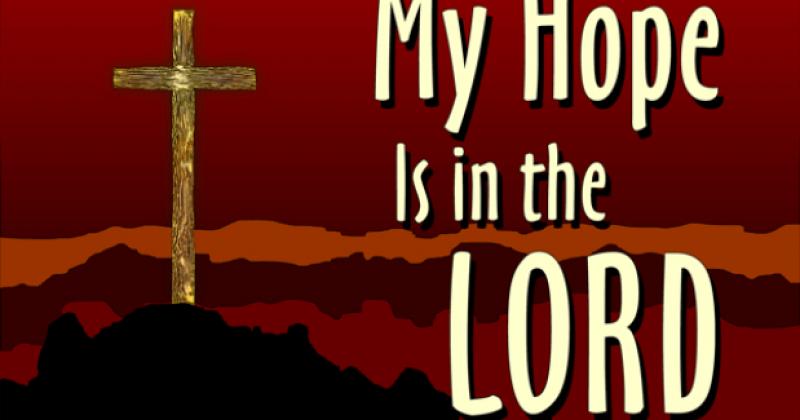Palm branches, cries of hosanna: As in the rest of the world, Palm Sunday was the start of Holy Week for Catholics in Iraq. In Malabrwan, a small Christian village in the north of the country dozens of children gathered in the Chaldean parish church holding palm and olive branches to commemorate Jesus' entry into Jerusalem. They listen to the Gospel and they sing songs. Happiness can be seen on their faces, as can light-heartedness. But one should not be deceived: many of the children have gone through bad times. They are among the Christian refugees who had to leave their villages and towns around Mosul last summer to avoid the terror of the so-called "Islamic State" (ISIS).
"I was born and grew up in Mosul. And up to June of last year I worked there as a monk in our monastery of St. George. But like thousands of others I fled from the town when the ISIS jihadists marched in. Now there are no Christians in Mosul any more. And our monastery has been destroyed", Fr. Dankbar Issa, a monk of Chaldean Antonian order, says. But Father Dankbar doesn't want to sound bitter. "We Christians were baptised into the suffering of our Lord. So persecution is something we have to expect. Furthermore in a few days we will be celebrating Easter. We know that Easter, which means life, will be victorious. It gives us hope in spite of all the difficulties."
And there are plenty of difficulties. Dozens of families have found refuge in the parish. People have been given accommodation wherever there is space. Some are now living in the catechism school: there is a Christian family living in every classroom, often five people or more. Religious instruction is taking place in the meantime in a tent. The people were not starving, Father Dankbar says. They also had clothing and shelter. "But they don't have any prospects. And the children don't go to school. Their homeland has been occupied by the army of the devil. There's no way of foreseeing what will happen. This is of course a great burden for them."
Fadil, a young father, comes from Mosul. The town is today the capital of the ISIS caliphate. "We Christians must suffer as Christ suffered. That is what our faith teaches us. But that also comforts us," he says. "Faith is the only thing we have left. After all, we had to leave everything else back in Mosul." But Fadil does not want to go away. "We will not leave Iraq. Where would we go? This is our home. We belong here."
But not everybody sees it like that. There is the family of five of Abdel, a Christian from Qaraqosh. Once the largest Christian city in Iraq, it has been in the hands of ISIS since the beginning of August. Abdel and his family intend to leave Iraq. They will already be in Jordan to celebrate Easter. "Of course we don't find it easy to leave our homeland. But we have no future here," Abdel stresses. His wife and three children agree. "We want to go to Australia and start a new life there. We have family there. And so the new start will not be too difficult."
But it's not easy to get to Australia. Those who want to go have to register as refugees with the authorities of the United Nations. It often takes years before it is actually possible to travel to the west. There are already Christian families who can't afford to stay in Jordan, Turkey or Lebanon and who return to their homeland. Abdel is aware of the difficulties: "We have enough money for two years. I hope that will suffice."
In fact the work of the Church is a race against time. "Every day Christian families are leaving Iraq," says Archbishop Bashar Warda, the head of the Chaldean Church in Erbil. "But we do what we can to help our people." A lot has actually happened since last August when tens of thousands of distressed and desperate people sought refuge in Erbil and other towns in Iraqi Kurdistan. Initially the people slept on the bare ground and in the open. "We were of course not prepared for something like this," the Archbishop says. "But the humanitarian situation has since stabilised. In this phase we are concentrating mainly on two things: schools for the children and proper accommodation for the people. With the help of Aid to the Church in Need we have been able to set up eight provisional schools for refugee children. We hope it will be possible to get them all up and running for the new school year. In addition we have rented hundreds of apartments, again with the support of Aid to the Church in Need." This was restoring the people's dignity, the Archbishop stressed.
He added: "I wish to thank all benefactors for their generosity. Without them we would not be able to do what we are doing because Aid to the Church in Need is our most important source of help. Please continue to support us. In particular pray for the Christians and all people suffering in Iraq. I wish you and your families a Happy Easter!"
